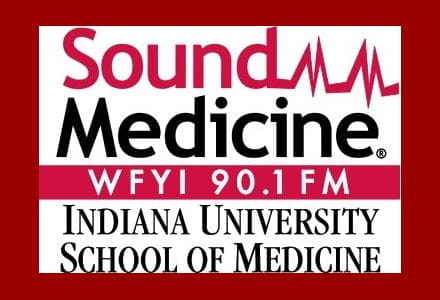INDIANAPOLIS — “Sound Medicine” announces its program for Dec. 15, with a conversation about health care “super users,” advances in facial transplants, and genes that could possibly prevent diabetes and obesity.
Why are social workers going on emergency runs in Indianapolis? In 2013, Wishard Hospital Emergency Medical Services Department made 96,000 runs in response to 911 calls. Each year thousands of uninsured people call 9-1-1 and visit emergency rooms as their primary source of health care. To reduce overuse of their service, the department developed CORE: Community Outreach and Resource Efficiency. One aspect of the program places social workers with emergency room repeat offenders. The social workers help identify social issues that contribute to habitual emergency room visits. Andrea Muraskin, field producer, tells us about the irony of CORE that challenges its future.
How is health care changing for “super users?” Jeffrey Brenner, M.D., joins “Sound Medicine” for a conversation about health care “super users” — typically low-income patients who frequent the emergency room and use lots of expensive health care services. Dr. Brenner talks about one patient whose case is noteworthy. Dr. Brenner won the 2013 MacArthur Fellowship for his research on coordinating health care for super users.
How have facial transplants changed since 2008? Daniel Alam, M.D., a facial plastic surgeon at the Cleveland Clinic, performed the first U.S. near-total facial transplant in 2008. Since then, new and promising data has emerged that supports the value and effectiveness of facial transplants. Dr. Alam joins host Barbara Lewis to discuss how things have changed over the past few years, and the promising advances on near-total facial transplants.
Can researchers develop genes to prevent obesity? Roger J. Davis, Ph.D., talks with Barbara Lewis about JNK genes that, when blocked, are able to prevent diabetes and obesity in mice. Dr. Davis discusses his research and the future of JNK gene blocking in humans. Davis was the 2013 recipient of the Steven C. Beering Award for the Advancement of Biomedical Science. He is a professor in the Department of Molecular Medicine at the University of Massachusetts Medical School.
How can we combat holiday stress? The holiday season is exciting, but it can also be extremely stressful. Between buying gifts, attending family outings and trimming the tree, you may not feel there are enough hours in the day to also make it to the gym. According to Shaun Hollering, a personal trainer at Lifetime Fitness in Indianapolis, getting exercise can help combat holiday stresses.
“Sound Medicine” covers controversial ethics topics, breakthrough research studies and the day-to-day application of recent advancements in medicine. It’s also available via podcast and Stitcher Radio for mobile phones and iPads and posts updates on Facebook and Twitter.
Co-produced by the IU School of Medicine and WFYI Public Radio (90.1 FM) and underwritten in part by Indiana University-Purdue University Indianapolis, “Sound Medicine ” airs on the following Indiana public radio stations: WBSB (Anderson, 89.5 FM), WFIU (Bloomington, 103.7 FM; Columbus, 100.7 FM; Kokomo, 106.1 FM; Terre Haute, 95.1 FM), WNDY (Crawfordsville, 91.3 FM), WVPE (Elkhart/South Bend, 88.1 FM), WNIN (Evansville, 88.3 FM), WBOI (Fort Wayne, 89.1 FM), WFCI (Franklin, 89.5 FM), WBSH (Hagerstown/New Castle, 91.1 FM), WFYI (Indianapolis), WBSW (Marion, 90.9 FM), WBST (Muncie, 92.1 FM), WBSJ (Portland, 91.7 FM), WLPR (Lake County, 89.1 FM) and WBAA (West Lafayette, 101.3 FM).
“Sound Medicine” is also broadcast on these public radio stations across the country: KSKA (Anchorage, Alaska), KTNA (Talkeetna, Alaska), KUHB (Pribilof Islands, Alaska), KUAF (Fayetteville and Fort Smith, Ark.), KIDE (Hoopa Valley, Calif.), KRCC (Colorado Springs, Colo.), KEDM (Monroe, La.), WCMU (Mount Pleasant, Mich.), WCNY and WRVO-1 (Syracuse, N.Y.), KMHA (Four Bears, N.D.), WYSU (Youngstown, Ohio), KPOV (Bend, Ore.) and KEOS (College Station, Texas).
Please check local listings for broadcast dates and times.




